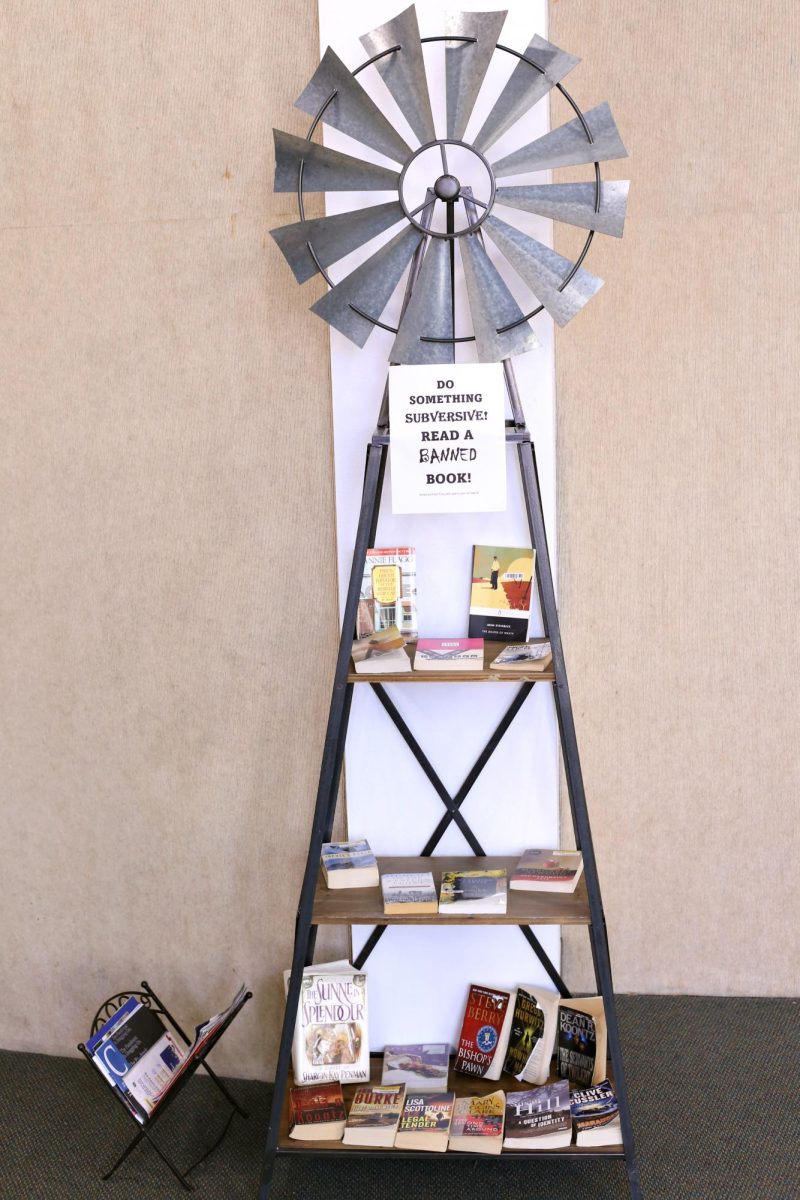Whenever I say the word “Perks” I think one clear piece of media comes to mind. Whether it’s the book or the movie adaptation, “The Perks of Being a Wallflower,” written by Stephen Chbosky, is a story known to many.
Why wouldn’t it be? It’s a relatable coming-of-age tale. The story follows main protagonist Charlie in his lighthearted yet treacherous journey through one of the most fundamentally life-changing years of his adolescent life – high school.
Charlie communicates his experiences to the reader through his tell-all letters to us, his “Dear Friend.” He navigates us through life as he copes with the death of his friend by suicide, his rocky relationships with family and friends, the books he reads for his advanced English class, and many more classic high school cliches. Of course, you can’t forget he does all this while making mixtapes full of The Smiths songs, which is probably the character trait of his I relate to the most.
However, the most crucial aspect of Charlie and his story is usually overlooked. Charlie is evidently dealing with mental health problems, but the one person who seemed to light up his darkest days is his late Aunt Helen. He often reminisces about spending time with her and how he misses her dearly. It’s not until you reach the end of the book that you discover that his aunt sexually abused him when he was a child. The tragedy is Charlie blames himself for his aunt’s death, as she died in a car accident while on her way to get him a Christmas present. It isn’t very pleasant to read about, but Charlie’s fictional story is many people’s reality. That, to me, is the most upsetting part of “Perks.”
Apart from mentioning sexual abuse, “Perks” has LGBTQIA+ themes, mental health, substance abuse, profanity and sexually explicit descriptions. The book was published on February 1, 1999. It was first banned in 2003 in Fairfax, Virginia, by the group Parents Against Bad Books. A year later, “Perks” was first challenged in Texas by the Liberty Patrons of Texas in 2004, following and referencing defenses/reasoning posted by those in Fairfax. “Perks” was challenged alongside fifteen other novels featuring LGBTQIA+ positive themes or references.
“Perks” was most recently challenged in Houston. Conroe ISD board of trustees decided the novel would be removed from classroom curriculums but remain in the school libraries. This decision came after eight hours of discourse, per Texas Education Agency standards. Still, the district plans to implement a library system where parents can block and monitor the books their children can and cannot check out. In 2021, Texas Gov. Greg Abbott appointed the TEA to work toward preventing the inclusion of “obscene content” from school libraries across the state.
As much as I love “Perks,” I understand why it is banned for younger students. I can’t say the same for high school students. The themes are heavy but aren’t far from real-world issues, nor do they mislead the readers. The themes reflect what many young adults face, which is probably a scary idea for the people trying to control what’s in the classroom and on library shelves. Book banning generally feels like such an infringement on our rights.
Limiting the capabilities of media we can consume is detrimental to us. It’s one-sided. Silencing real-life ideas, fiction or not, is not helping students; it is doing the opposite. We usually listen to music, watch films, and read books for two reasons – We relate and want to escape. Stripping these books off the shelf gives students and young people the impression that their stories, like that of Charlie and the other characters of Perks, are irrelevant, inappropriate, and, in Abbott’s words, “obscene.”
But the truth is obscenity is our everyday reality. Victims of abuse, hate speech, bullying, substance abuse and more don’t just get to take themselves off a shelf and pretend whatever they are going through doesn’t exist. They endure it. We endure it. We can do so by having content which comforts us and assures us that whatever we are going through, we are not the first nor the last. Most importantly, it reassures us we are not alone in a world which makes us feel like we are. On the website Goodreads, you’ll find review after review raving over how much readers related to “The Perks of Being a Wallflower” and its characters. They all come from different walks of life, just like the people flipping through the pages of their stories.
I also genuinely believe the book wouldn’t have made as much of an uproar if it didn’t feature Patrick, Charlie’s gay best friend. Unfortunately, many ignorant people still control the narrative of this country and our state. LGBTQIA+ teens need to see characters like Patrick to be reassured that being a part of the community is not shameful but a unique part of their identity.
I’m a firm believer in increasing media literacy. It feels as though fewer and fewer people can really evaluate and interpret art rather than take it at face value. Media consumption is essential to broadening the mind. Looking at things from all angles helps avoid ignorance and promotes open-mindedness instead of relying on toxic echo chambers bouncing denseness around. So “Perks” being banned is purely based on complaints from people who have never left said picture-perfect echo chambers.







